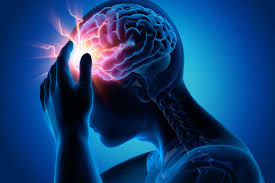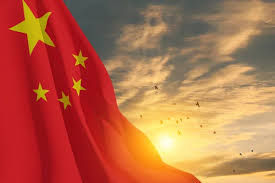HOW RUSSIA/UKRAINE WAR WILL END
- Media Services
- Sep 24, 2023
- 7 min read

The Putin’ Russia agenda: A forever war in Ukraine and Putin will not play along with a quiet border with Ukraine for NATO to defend.
This geopolitical dilemma has been presented to our G-101 SPM AI algorithm for an answer. For a solution to end the conflict, the base data included: Fourteen subjective probabilities and nine objective conclusions which include: (1) Prior the conflict Ukraine graduated 145,000 engineers — more than Germany and France; (2) Ukraine has the most experienced standing army in Europe, (3) Ukraine has the most expertise in next-generation drone warfare and other applications in the world ,(4) Ukraine has comprehensive younger generation that has come of age in a post-Soviet Ukraine and (5) Ukraine has a near unlimited flow of war-hardware and humanitarian funding to counter the conflict.
The G-101 SPM AI algorithm tag: G-101 SPM +84.16 (a tag forecasts an 84.16% chance of accuracy). The Russian/Ukraine War will not end until 2025 at which time Russia will a have different administration and four primary conditions are addressed: (1) Russian full withdrawal and border integrity including Crimea, (2) a ten year moratorium before Ukraine’s entry into the E.U. and NATO, (3) a ten year $15 billion Extended Fund Facility from the International Monetary Fund with proceeds used for humanitarian and military expenditures.
OVERVIEW OF THE SUBJECTIVE PROBABILITY MODEL G-101 SPM + 84.16.
History repeats itself like a never-ending nightmare.
In 1939, the arrival of a German plane in Warsaw meant death and mayhem would soon follow and a war that killed and displaced one-half of the world’s population. Fast-forward to today, Warsaw is a political miracle as is Europe and most of the world. Forgotten are European diplomats, with the help of American presidents and American power, to create this scene of multireligious, multinational normality that is today’s European Union.
Today, western intervention in Ukraine is exactly what should have happened in 1939. In 1939, the free world did nothing and allowed Hitler's Germany to destroy Europe. Vladimir Putin’s savaging of Ukraine is a direct attack on the entire free world. Losing Ukraine to Putin’s Russia ends the post World War II era that had created a Europe more united and freer than ever before in its history.
What Putin is doing in Ukraine is not just reckless, not just a war of choice, not just an invasion in a class of its own for overreach, mendacity, immorality, and incompetence, all wrapped in a farrago of lies.
Putin is evil. He has trumped up any number of shifting justifications — one day it was removing a Nazi regime in power in Kyiv, the next it was preventing NATO expansion, the next it was fending off a Western cultural invasion of Russia — for what ultimately was a personal flight of fancy that now requires his questionable superpower army turning to North Korea for help. It’s like the biggest bank in town having to ask the local pawnshop for a loan. So much for Putin’s bare-chested virility.
What is so evil — beyond the death and pain and trauma and destruction he has inflicted on so many Ukrainians — is that at a time when climate change, famine, health crises and so much more are stressing Planet Earth, the last thing humanity needed was to divert so much attention, collaborative energy, money, and lives to respond to Putin’s war to make Ukraine a Russian colony again. Currently, Putin has stopped even bothering to justify the war — maybe because even he is too embarrassed to utter aloud the nihilism that his actions scream.
Ukraine is a game-changer for the West, for better or for worse depending on the war’s outcome. Its integration into the European Union and NATO someday would constitute a power shift that could rival the fall of the Berlin Wall and German unification. Ukraine is a country with impressive human capital, agricultural resources, and natural resources — “hands, brains and grains.” Its full-fledged integration into Europe’s democratic security and economic architecture would be felt in Moscow and Beijing.
Putin knows that. His war has never been primarily about countering NATO expansion. It has always been much more about stopping a Slavic Ukraine from joining the European Union and becoming a successful counter example to Putin’s Slavic thieving autocracy. E.U. expansion to Ukraine is a mortal threat — it exposes Putinism as the source of Russia’s weakness. And the Ukrainians understand that they and Europe were bound up together in an epochal moment against Putinism — a moment, though, that cannot succeed without a steadfast United States. Which is why one of the most frequent — and worried — the singular questions: “Do you think Putin’s pal Trump can be president again?”
One need only look into the eyes of Ukrainian soldiers back from the front, or talk to parents in the streets of Kyiv, to be stripped of any illusions about the moral balance of this war. This is as obvious a case of right versus wrong, good versus evil, as you find in international relations since World War II. Yet the closer you come to this conflict and think about how to resolve it, that stark black-and-white moral balance sheet doesn’t offer an easy road map to a solution. It is clear as day what defines a just outcome. It’s a Ukraine that is whole and free — with reparations paid by Russia. But it isn’t at all clear how much such justice is attainable, and at what price, or whether some dirty compromise will be the least-worst option, and if so, what kind of compromise, just how dirty, when and guaranteed by whom.
In other words, the minute you step out of the justice framework of this war — and into the realm of noisy diplomacy — the whole picture turns from black-and-white to different shades of gray. Because the bad guy is still powerful and still has friends and therefore a say. Ukraine, too, has lots of friends committed to helping it fight as long it wants to — until “as long as it wants to” becomes too long in Washington and other capitals of the West.
It is very hard to stop a leader who has no shame or conscience.
The shamelessness is breathtaking. And while his beseeching of North Korea for military help is pathetic, the fact that he’s prepared to seek it underscores that he intends to continue this war until he can come away with some chunk of Ukraine that he can hold up as a face-saving success.
“Human morality must win this war,” Zelensky said. “Everyone in the world who values freedom, who values human life, who believes that people must win. And our success, the specific success of Ukraine, depends not only on us, on Ukrainians, but also on the extent to which the entire vast moral space of the world wants to preserve itself.”
But securing justice in war almost always requires the total defeat and occupation of the aggressor. Russia has more than three times the population of Ukraine. Indeed, when you listen to Ukrainian soldiers speak, you hear a cocktail of Zelensky-like defiance, mixed with admissions of exhaustion.
What preoccupies so many Ukrainians are the same two issues that preoccupy so many officials in Washington: Kyiv’s counteroffensive against the Russians in the immediate term and the security needs of Ukraine in the longer term.
On urgency: Ukraine needs to inflict as much damage on Putin’s army as fast as possible. That means we need to massively and rapidly deliver the weaponry Ukraine needs to break Putin’s lines in the country’s southeast. F-16s; mine-clearing equipment; more Patriot antimissile systems; MGM-140 Army Tactical Missile Systems (approved this week), which could strike deep behind Russian lines — whatever the Ukrainians can use effectively and fast.
If the war drags on, the way it has been, through this coming winter, with a bloody stalemate because the Ukrainian Army can’t penetrate the huge minefields and trenches the Russians have dug along the crescent zone of Eastern Ukraine they occupy, Zelensky could face quiet pressures at home to negotiate and loud ones from his European allies. Moreover, Putin could run out of pariah states, like North Korea and Iran, from which to secure more ammunition.
Any kind of formal or informal cease-fire is possible. But what’s impossible is this: Ukraine agreeing to any permanent or temporary end to this conflict without the promise of a NATO Article 5 security guarantee (or some equivalent from the U.S. and Europe). Such a security guarantee would signal to exhausted Ukrainians, foreign investors, and the millions of Ukrainian refugees abroad that the war is basically over, and Putin can’t just rearm and reinvade without the U.S. and Europe defending Ukraine.
Oh, you didn’t think that was coming — that we’d just be able to share in Ukraine’s victory, walk away and leave an angry Putin licking his wounds? Here’s the skinny: No Western security guarantees or an equally operational proposal for Ukraine, no end to this war.
Therefore, once the diplomacy begins, “the two strong arms of the West — that is the E.U. and NATO — which are closer because of this war, will have to bring Ukraine into both NATO and the E.U.,” offered, European historian Timothy Garton. He recently authored, “Homelands: A Personal History of Europe.” He remarked, “a durable, lasting peace requires Ukraine in NATO as soon as possible and in the E.U. incrementally.”
OUR TAKE: The Russian/Ukraine War will not end until 2025 at which time Russia will a have different administration and four primary conditions are addressed: (1) Russian full withdrawal and border integrity including Crimea, (2) a ten year moratorium before Ukraine’s entry into the E.U. and NATO, (3) a ten year $15 billion Extended Fund Facility from the International Monetary Fund with proceeds used for humanitarian and military expenditures.

Ask for whitepaper UKRAINE SOLUTION R16-A – available free for a limited time.




Comments